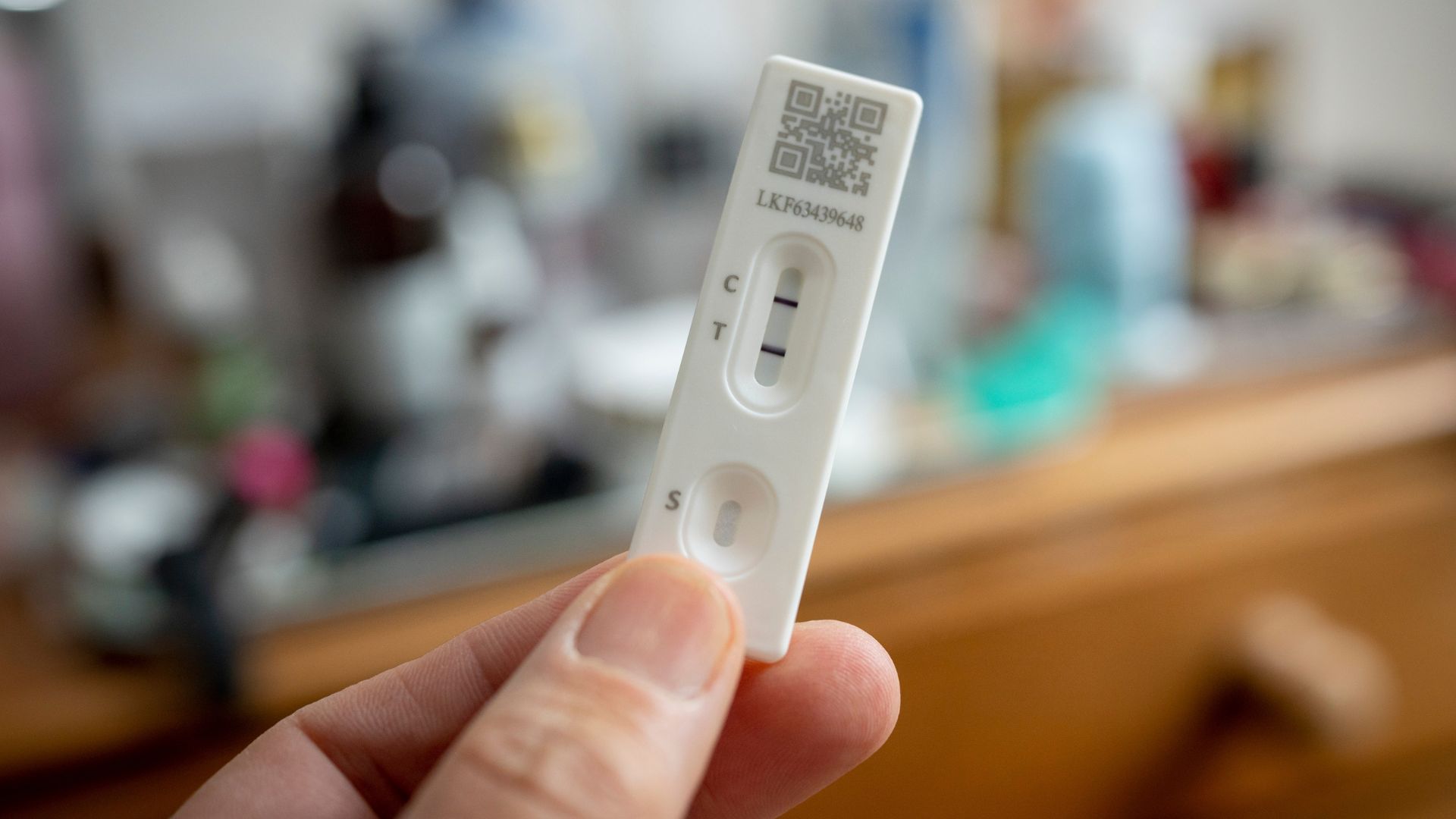Genetic quirk could explain why not everyone shows symptoms of COVID-19
In a large cohort of people infected with SARS-CoV-2, a specific gene variant was more common in people who didn't show symptoms, compared to those who did.

Get the world’s most fascinating discoveries delivered straight to your inbox.
You are now subscribed
Your newsletter sign-up was successful
Want to add more newsletters?

Delivered Daily
Daily Newsletter
Sign up for the latest discoveries, groundbreaking research and fascinating breakthroughs that impact you and the wider world direct to your inbox.

Once a week
Life's Little Mysteries
Feed your curiosity with an exclusive mystery every week, solved with science and delivered direct to your inbox before it's seen anywhere else.

Once a week
How It Works
Sign up to our free science & technology newsletter for your weekly fix of fascinating articles, quick quizzes, amazing images, and more

Delivered daily
Space.com Newsletter
Breaking space news, the latest updates on rocket launches, skywatching events and more!

Once a month
Watch This Space
Sign up to our monthly entertainment newsletter to keep up with all our coverage of the latest sci-fi and space movies, tv shows, games and books.

Once a week
Night Sky This Week
Discover this week's must-see night sky events, moon phases, and stunning astrophotos. Sign up for our skywatching newsletter and explore the universe with us!
Join the club
Get full access to premium articles, exclusive features and a growing list of member rewards.
Fever, shortness of breath and cough are all key COVID-19 symptoms we've been told to look out for throughout the pandemic. However, at least 1 in 5 people who test positive for the virus don't develop any symptoms, and the reason why has remained a mystery — until now.
In a new study published Wednesday (July 19) in the journal Nature, scientists report a possible explanation for why some people don't develop symptoms after catching SARS-CoV-2, the virus that causes COVID-19, and it boils down to variation in a key gene involved in our immune response to viral infection.
After analyzing data from nearly 30,000 people, they found that people who carried a gene variant called HLA-B*15:01 were more than twice as likely to be asymptomatic following SARS-CoV-2 infection than those without the variant. Those with two copies of the variant showed even greater protection, with a more than eightfold greater likelihood of being asymptomatic.
The study authors propose that this variant guards against COVID-19 symptoms by tapping into the body's existing immunity against seasonal, cold-causing coronaviruses.
Related: A version of this gene doubles the risk of dying from COVID-19
Variations in the human leukocyte antigen (HLA) complex, a set of genes that help the immune system to detect disease-causing microorganisms like bacteria and viruses, shape how people react to viral infections, such as HIV and hepatitis B. However, scientists are still uncovering how HLA variations affect people's reactions to COVID-19.
To plug this gap, the authors recruited about 29,950 people for a smartphone-based study that tracked symptoms and outcomes of COVID-19. Focusing on 1,428 people who were unvaccinated and had caught the disease by the end of April 2021, the team identified 136 people who had not experienced symptoms for at least two weeks before and after testing positive for the virus.
Get the world’s most fascinating discoveries delivered straight to your inbox.
Of these asymptomatic people, 1 in 5, or 20%, were found to carry the HLA-B*15:01 gene variant, compared to 9% of people who reported symptoms of the disease. Similar trends in variant frequency were also seen in two additional, independent cohorts investigated by the team.
To explain why the HLA-B*15:01 variant may be protective, the team studied T cells, a type of immune cell, that were collected before the pandemic from a separate group of donors carrying the variant. Despite having not yet been exposed to SARS-CoV-2, these T cells were reactive to a protein fragment from the virus, as well as to similar fragments from seasonal coronaviruses. The authors therefore suggest that the absence of symptoms in people with HLA-B*15:01 could be explained by their cells being primed for the virus.
"We were able to show that when a piece of the SARS-CoV-2 virus is bound to this HLA, it looks remarkably similar at a molecular level to a piece of seasonal cold virus bound to that HLA," Jill Hollenbach, senior author and professor of neurology at the University of California, San Francisco, told Live Science in an email.
"Therefore, the T cells that are tasked with identifying infected cells are seeing essentially the same thing, making them highly cross-reactive," she explained.
The authors highlighted several limitations of their research, most notably that their analysis was restricted to people who self-identified as "white" due to an absence of data from other ethnic groups. Relying on self-reported symptoms also meant that they couldn't be certain that those who said that they were asymptomatic were completely free of symptoms.
Francois Balloux, a professor of computational systems biology at University College London who was not involved in the study, praised the findings but urged caution regarding any incorrect interpretation of their meaning.
"The study makes a really convincing case that this allele [gene variant] is protective," he told Live Science. But that doesn't mean that people with one or two copies of the variant will never have symptomatic COVID-19, he cautioned. "It is just that they're less likely to and other factors may be at play."
Going forward, "we think that this observation can help inform next generation vaccine design, and help us to understand how to prevent symptoms even when people do become infected," Hollenbach said. "In future work we hope to learn more about whether the same mutation is important in individuals from diverse ancestries and to gain a better understanding of why these cross-reactive T cells from HLA-B*15:01 individuals are so remarkably effective at controlling the virus."
"It would be interesting to know whether these findings extend to other HLA," types, Edd James, a professor in cancer immunology at the University of Southampton who was not involved in the study, told Live Science in an email. Other scientists have reported cross-reactivity between other HLAs, COVID-19 and seasonal coronaviruses, he noted.
"If so, can vaccinations be designed to harness this cross-reactivity," he said.

Emily is a health news writer based in London, United Kingdom. She holds a bachelor's degree in biology from Durham University and a master's degree in clinical and therapeutic neuroscience from Oxford University. She has worked in science communication, medical writing and as a local news reporter while undertaking NCTJ journalism training with News Associates. In 2018, she was named one of MHP Communications' 30 journalists to watch under 30.
 Live Science Plus
Live Science Plus










